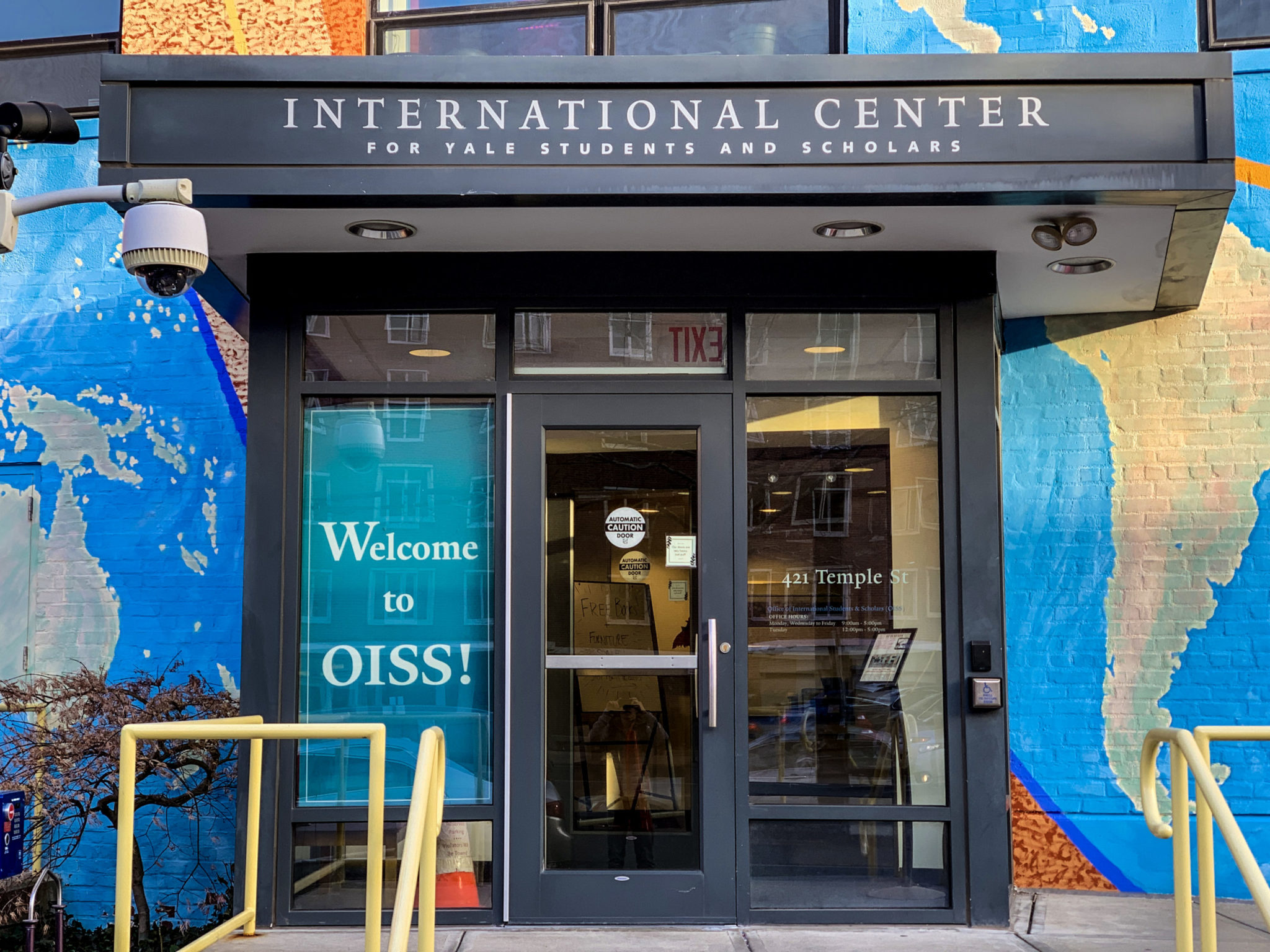International students on adapting to life at Yale following the COVID-19 pandemic
The News spoke to five international students about what it was like to return to the U.S. for school after the pandemic.

Yale Daily News
Last fall, students returned to campus for an in-person school year after a year-and-a-half of hybrid and remote learning. This was a particularly big change for international students, many of whom had been unable to either leave or enter the United States since the start of the COVID-19 pandemic.
The News interviewed five international students about their transition back to life in the U.S. over the last year and how it has been settling back into a traditional college experience.
“It was challenging to meet people online [during my first year], but now I feel a strong sense of community,” Adhya Menda ’24 said. “I really value in-person friendships because they developed in a very natural setting, and didn’t feel as forced as all the virtual activities.”
Menda, an international student from India, started college in fall of 2020 and had a hybrid college experience during her first year at Yale.
Rolando Kattan Rubi ’25, an international student from Honduras, explained the challenges he faced while traveling to the U.S. due to COVID-19 related restrictions.
A year ago, many international students struggled to travel to New Haven due to the varying travel guidelines enforced by each country.
“This year, everything was easier,” Kattan Rubi said. “Having less COVID-19 related requirements this year made everything easier so that immigration cannot give you trouble. Last year, I had to travel early in order to get vaccinated in the United States before we started college.”
The Office of International Students and Scholars, or OISS, exists to help students navigate their time at Yale, usually functioning as their first point of contact. OISS begins by explaining the U.S. immigration process and steps to apply for a U.S. visa to incoming students.
Ozan Say, the director of OISS, told the News that OISS provides a variety of resources for students, including peer liaisons who can help international first years to “recognize that they are not alone in this adjustment and many others before them have gone through the same process.”
“Realizing that it is going to require some adjustment usually makes things a little bit easier,” Say said.
Issy Po ’26, an international student from the Philippines, told the News that despite dealing with homesickness, Yale minimized the challenges faced during transition through the number of bonding activities offered at the beginning of the school year.
In particular, Po told the News that college aids and “Frocos” — Yale’s first-year counselors — made her feel welcome into her residential college.
“It’s been my home base since I got here,” Po said. “Fireside chat, first year dinner and Froco group among others are also such a genuine and constant reassurance that Ezra Stiles College is here to support me.”
Po added that Camp Yale and Yale’s suitemate system “embody a sense of home and community.”
Devina Aggarwal ’25 told the News that while her transition to Yale was challenging during the beginning of her first year, she now feels more adapted to life in the U.S. as she starts her sophomore year.
“Yale feels like home to me — I love being back with all my friends and I really missed spending all my time with them,” Aggarwal wrote in an email to the News. “I’ve been here almost a month now and it feels like I never left.”
Aggarwal, who is from India, told the News that one of the biggest transitions she faced was getting used to the cold and missing the food back home.
“The experience of studying at Yale and in the U.S. is also profoundly transformative, so being mentally ready to observe these personal changes can help them negotiate their evolving and transnational identities with their loved ones back home,” Say said. “Many internationals realize this when they first go back home and reconnect with family and friends.”
Nydia Del Carmen ’26, an international student from Nicaragua, mentioned how the biggest challenge for her has been establishing a routine, as life abroad is very different from life at home.
Del Carmen told the News that being friends with other international students who can relate with each other can help ease the transition.
“It does help that you are arriving with other first-year students that are also actively trying to adapt to college life, even if they live just a few hours from New Haven,” Del Carmen said. “It does feel like we are all in the same boat as this is a new experience for everyone.”
10 percent of students at Yale college are international students.







